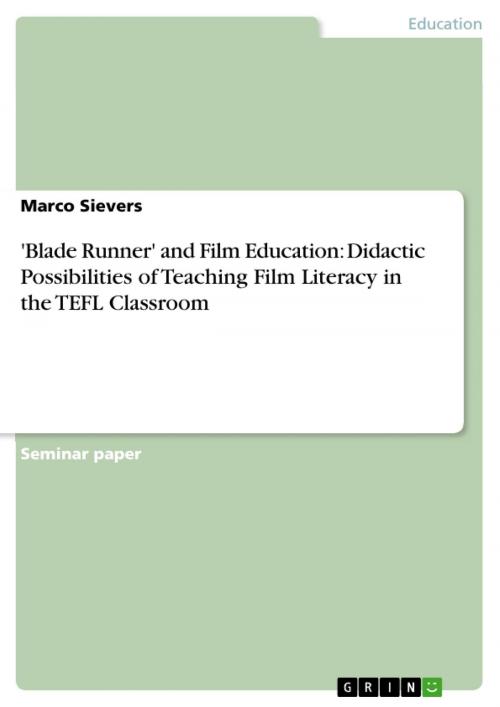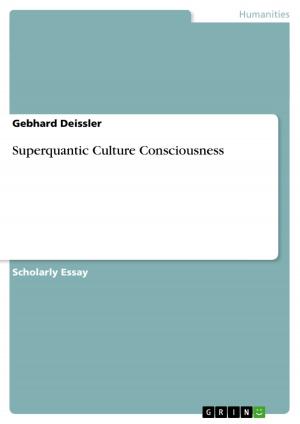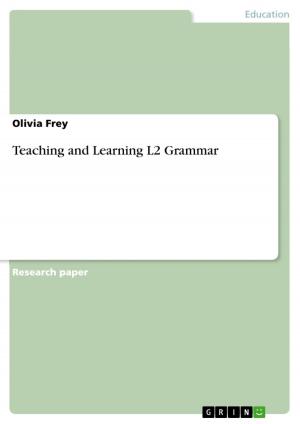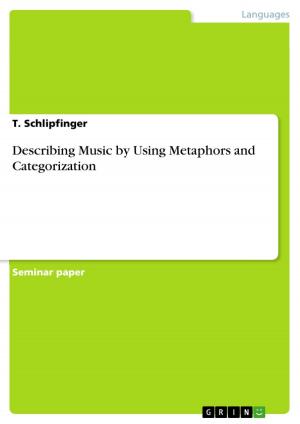'Blade Runner' and Film Education: Didactic Possibilities of Teaching Film Literacy in the TEFL Classroom
Nonfiction, Reference & Language, Study Aids, ESL, Foreign Languages| Author: | Marco Sievers | ISBN: | 9783640163038 |
| Publisher: | GRIN Publishing | Publication: | September 12, 2008 |
| Imprint: | GRIN Publishing | Language: | English |
| Author: | Marco Sievers |
| ISBN: | 9783640163038 |
| Publisher: | GRIN Publishing |
| Publication: | September 12, 2008 |
| Imprint: | GRIN Publishing |
| Language: | English |
Seminar paper from the year 2008 in the subject English - Pedagogy, Didactics, Literature Studies, grade: 1,0, University of Hannover (Englisches Seminar / Lehrgebiet Didaktik des Englischen), course: Hauptseminar Teaching Film (englische Fachdidaktik), 75 entries in the bibliography, language: English, abstract: (...) Film education is already practiced in some European countries, for instance in Eng-land, France and in Scandinavia. (cf. Wharton & Grant 2005: 7; Krüger 2005: 7; Willig 2006: 132ff) German curricula also allow for films, but mostly as part of media education, which is embedded in several subjects and aims at providing students with media competence. This competence should enable them to orient themselves in a world dominated by audio-visual media. It wants to support a conscious and critical handling of media, as well as a creative and self-determined one. By understanding and questioning media contents and aesthetics stu-dents should be protected from being controlled by the media. (cf. Surkamp 2004: 2; Willig 2006: 131f, 137; Roller 2006: 73; Holighaus 2005a: 9) Film education in a narrower sense, aiming at film competence or film literacy, still has to be promoted in schools, though. (cf. Krüger 2005: 7) The intention of the paper at hand is to show possible applications of Ridley Scott's science-fiction thriller Blade Runner, which foster film literacy within the context of teaching English as a foreign language (TEFL). First, it will explain the didactic value of films as TEFL devices, define film literacy as a learning target, and present an overview on ap-proaches and methods of teaching film. In doing so, a special focus will be set on film adapta-tions of literary texts. Then, the paper will turn to Scott's science-fiction masterpiece and pro-vide a summary of its plot as well as a survey on prominent topics and interpretations. After-wards it will likewise deal with its literary basis, Philip K. Dick's novel Do Androids Dream of Electric Sheep? As an example how to bridge the gap between theory and practice, the last section will finally present sample exercises for the use of the movie in the TEFL classroom. It will cover an analysis of film language as well as intertextual tasks.
Seminar paper from the year 2008 in the subject English - Pedagogy, Didactics, Literature Studies, grade: 1,0, University of Hannover (Englisches Seminar / Lehrgebiet Didaktik des Englischen), course: Hauptseminar Teaching Film (englische Fachdidaktik), 75 entries in the bibliography, language: English, abstract: (...) Film education is already practiced in some European countries, for instance in Eng-land, France and in Scandinavia. (cf. Wharton & Grant 2005: 7; Krüger 2005: 7; Willig 2006: 132ff) German curricula also allow for films, but mostly as part of media education, which is embedded in several subjects and aims at providing students with media competence. This competence should enable them to orient themselves in a world dominated by audio-visual media. It wants to support a conscious and critical handling of media, as well as a creative and self-determined one. By understanding and questioning media contents and aesthetics stu-dents should be protected from being controlled by the media. (cf. Surkamp 2004: 2; Willig 2006: 131f, 137; Roller 2006: 73; Holighaus 2005a: 9) Film education in a narrower sense, aiming at film competence or film literacy, still has to be promoted in schools, though. (cf. Krüger 2005: 7) The intention of the paper at hand is to show possible applications of Ridley Scott's science-fiction thriller Blade Runner, which foster film literacy within the context of teaching English as a foreign language (TEFL). First, it will explain the didactic value of films as TEFL devices, define film literacy as a learning target, and present an overview on ap-proaches and methods of teaching film. In doing so, a special focus will be set on film adapta-tions of literary texts. Then, the paper will turn to Scott's science-fiction masterpiece and pro-vide a summary of its plot as well as a survey on prominent topics and interpretations. After-wards it will likewise deal with its literary basis, Philip K. Dick's novel Do Androids Dream of Electric Sheep? As an example how to bridge the gap between theory and practice, the last section will finally present sample exercises for the use of the movie in the TEFL classroom. It will cover an analysis of film language as well as intertextual tasks.















